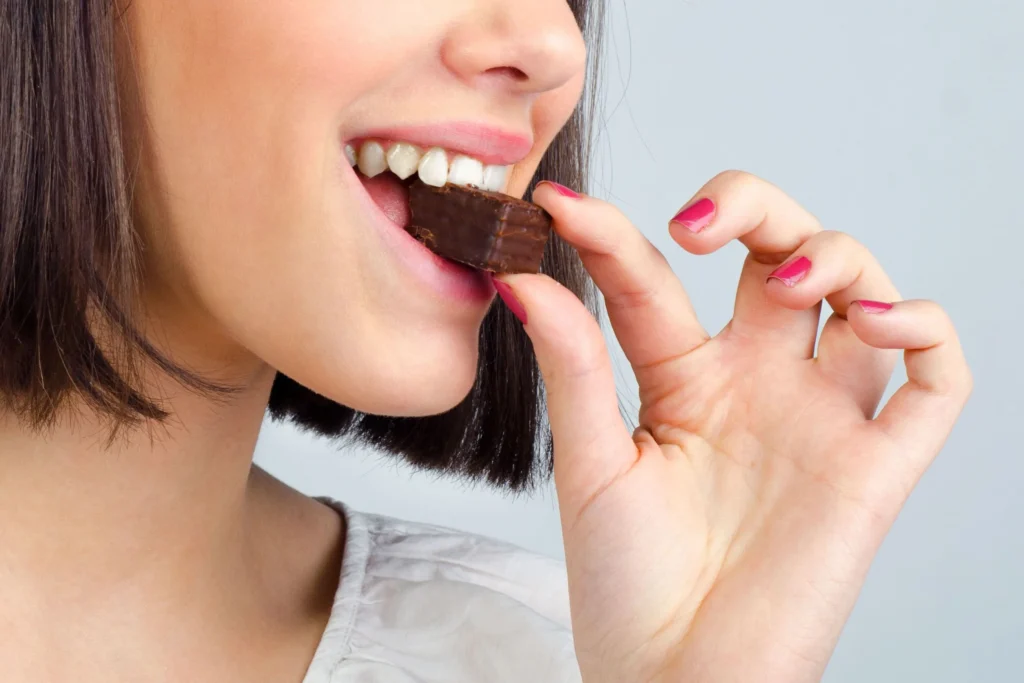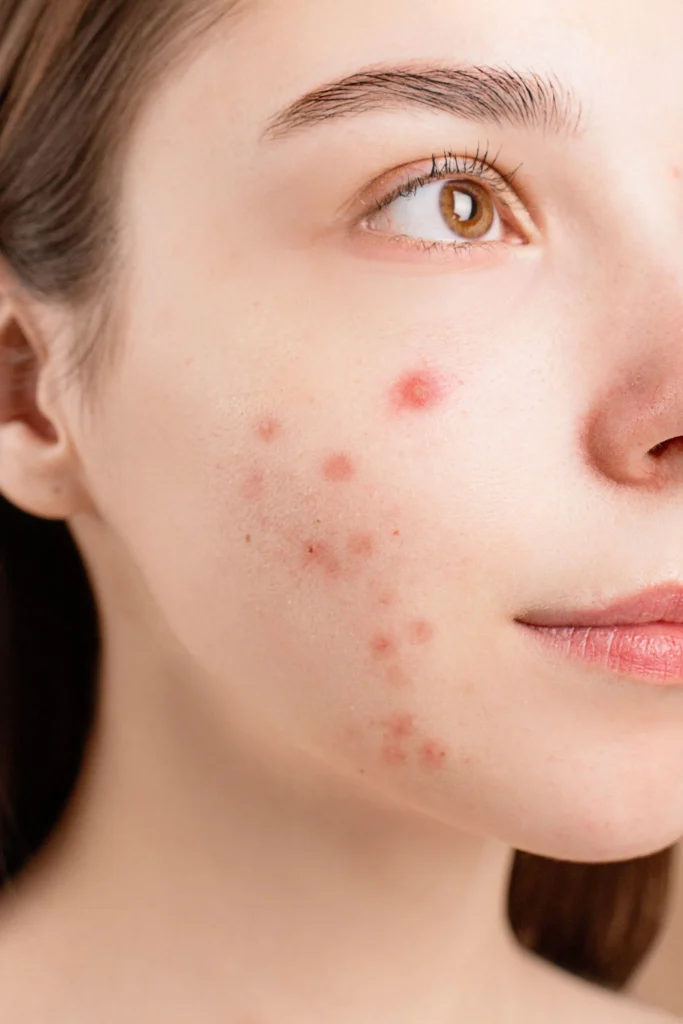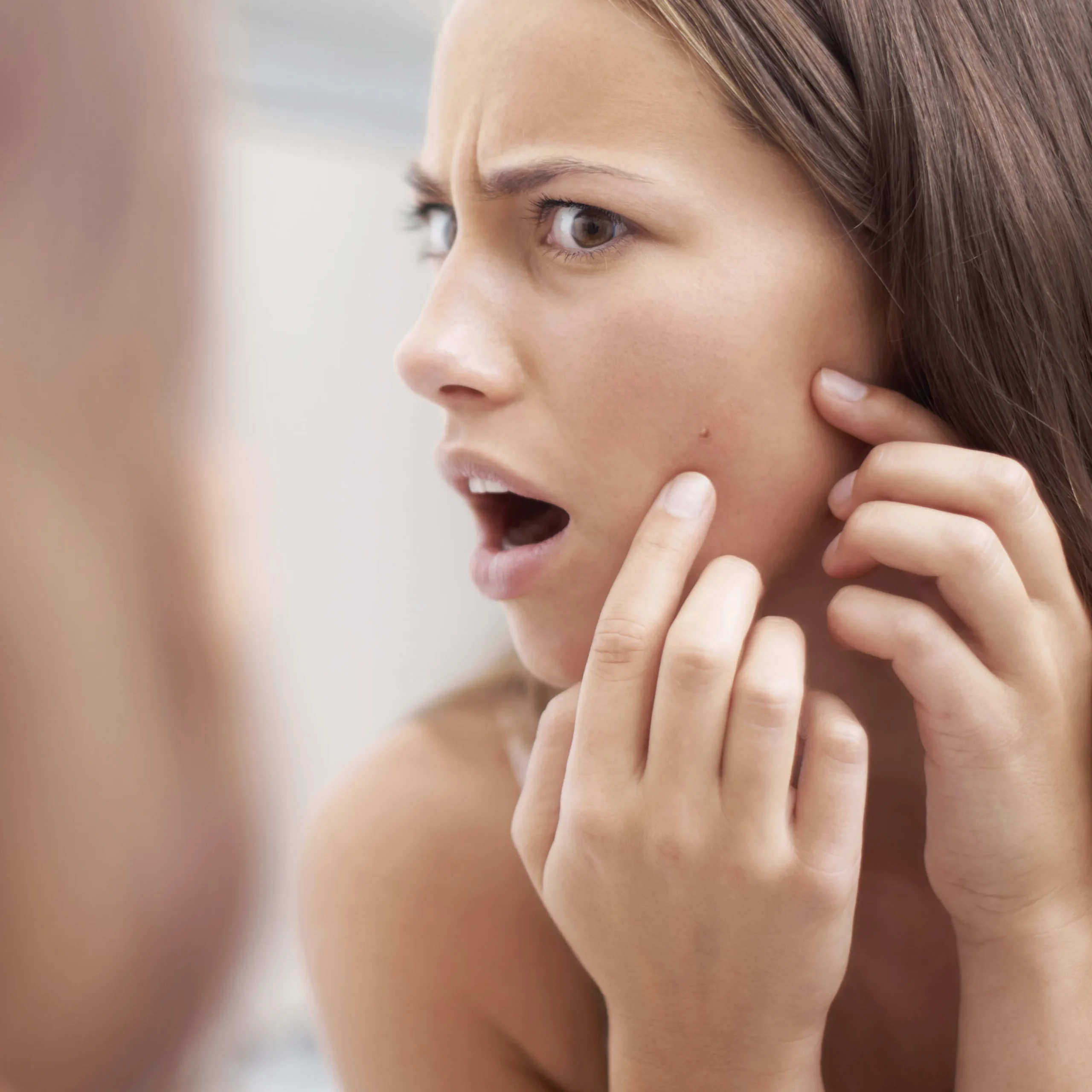Is it true that those pesky little blemishes are acne? Why do we still get zits and blemishes well past our teenage years, and how can we get rid of them for good?
Acne is inconvenient at any age, but it can be especially embarrassing for adults. Unfortunately, adult acne can appear even in your 30s, 40s, and 50s. Even if you did not have acne as a teenager, it is possible to develop it later in life.
What Causes Adult Acne? **The 7 Surprising Known Causes**
Adult acne can occur for a variety of reasons, but it is unlikely to be caused by eating chocolate or greasy foods. Adult acne in men is usually caused by the same factors that cause teenage acne. However, the causes are more complicated in women. Adult acne is usually caused by one of the following factors:
Diet:
Which can influence inflammation throughout the body.
Fluctuating hormones:
Hormonal factors such as estrogen and progesterone are common in female acne, as are hormonal changes caused by pregnancy and menopause. Acne can be caused or worsened by circumstances such as starting, stopping, or changing a birth control pill or IUD. Acne can appear months after the change. Female adult acne frequently has “flares” or breakouts that can be linked to specific times of the menstrual cycle.
Stress:
Research suggests a connection between acne and stress. When we are stressed, the level of acne-causing hormones known as androgens rises, stimulating oil glands and hair follicles, both of which contribute to acne.
Skin and hair products:
Not all skin care products are the same. Look for words like oil-free, non-comedogenic, or non-acnegenic on the labels. These terms indicate that the products will not clog pores or cause excessive oil production. Check to see if your face wash, moisturizer, and sunscreen contain these phrases.
An underlying medical condition:
Acne may be caused by an undiagnosed medical condition in a small percentage of patients. Polycystic ovarian syndrome (PCOS) is a condition that frequently underpins chronic or difficult-to-control acne in women. To more accurately pinpoint the underlying causes, a dermatologist will perform a thorough exam, take a thorough medical history, and potentially run a blood test.
Family history:
Yes, yet another thing we can blame on our genes. Acne may be genetically predisposed if a close relative or family member has had acne. The good news is that it can still be treated.
Medications:
Acne is a side effect of some medications that can either cause or worsen the condition. A dermatologist can tell you whether your medications are causing or contributing to breakouts. Steroid inhalers, birth control, and testosterone are all common factors.
The Most Common and Useful Adult Acne Questions (Adult Acne FAQs)
Why Do I Still Have Acne in My Late 20s or 25s?
Adult acne is caused by the same factors that cause teen acne: excessive skin oil and bacteria. Any hormonal changes, including those caused by pregnancy and menstruation, can cause excess oil. Women who smoke appear to be more acne prone.
Acne runs in families, so if one of your parents had adult acne, you’re at a higher risk. Acne can affect people in their 40s and beyond.
I Wash a Lot But Still Get Blackheads. Why?
Blackheads and acne cannot be removed by washing your skin. Why? When oil, also known as sebum, reacts with air in a partially clogged pore, blackheads form beneath the skin’s surface. A whitehead forms when a pore is completely blocked.
Wash your face twice a day, especially after sweating, with a gentle cleanser and warm, not hot, water. Scrubbing your skin can aggravate acne.
Do Birth Control Pills Cause or Cure Acne?
Birth control pills may aid in the control of acne in some women. Birth control pills contain hormones that can help block androgen hormones. Androgen stimulates the oil glands. Some birth control pills, on the other hand, can aggravate acne. Even if you use birth control pills, you will still require an acne skin care routine.

Could My Makeup Cause My Acne?
Yes. Anything you put on your face, in fact, has the potential to clog pores. Look for makeup, sunscreen, and other skin care products that are oil-free. Acne-prone skin may benefit from non-comedogenic and nonacnegenic products.
You could also experiment with powder cosmetics instead of cream foundations. If you must wear foundation, some dermatologists recommend oil-free liquid silicone matte foundations with dimethicone or cyclomethicone.
My Job is Stressful. Is That a Factor In Acne?
Acne is not thought to be caused primarily by stress. Acne can frequently increase your stress levels. Acne treatment that is effective may actually help you reduce your stress.
However, stress can aggravate acne in some people. If you believe that stress causes outbreaks, simple techniques such as deep breathing exercises or even meditation can help you relax.

Stress and Acne
What’s The Truth About Chocolate and Acne?
According to verywellhealth.com, There is no scientific evidence to suggest that eating chocolate, sugar, or greasy foods causes acne. However, if certain foods appear to cause breakouts, avoid them.
Other ways that sugary or greasy foods harm your health include diabetes and heart disease. Choose fresh foods to improve your overall health.

Eating Chocolate and Acne
What Is Deep-Cyst Acne?
Deep-cyst acne can be painful and frustrating to treat. Follicles are clogged deep beneath the skin’s surface. Your doctor may choose to treat this severe form of acne with antibiotic pills for a short time. Injectable corticosteroids may calm the inflammation. Topical creams with retinoids may also help.
Never pick, poke, or pop lesions. That can worsen acne and cause scars.

What Is Deep-Cyst Acne?
What Other Kinds of Acne Are There?
There are two general kinds of acne:
- Comedones — blackheads and white heads.
- Inflammatory lesions — papules (pimple), pustules, or nodules or cysts.
A dermatologist can work with you to develop a treatment plan for your acne and unique skin type.
Could My Acne Be Related to Anemia?
The link between anemia, low iron, and acne has not been established. A few studies have found a tenuous link. However, scientists believe that anemia is unlikely to be the root cause of acne. Taking too much zinc to treat acne, on the other hand, may result in anemia. There is little scientific evidence that zinc helps acne.
Am I Stuck with Acne Forever?
Acne appears to fade with age on its own. Acne becomes less common after the age of 44, according to one study. Acne can also be associated with menopause in some women.
Fortunately, there are adult acne treatments available until then. Most people find that a combination of products works best for them. Treatment takes time (usually 4 to 12 weeks) and must be continued in order to be effective.
Is Effective Treatment Available for Adult Acne? What’s The Best way to Treat Acne for Adults?
Yes. Prescription medications are the most effective treatments for adult acne. Your dermatologist can recommend the most effective medicine. Topical medications, cleansers, moisturizers, and oral pills may all be used in treatment.
Remember, acne is a medical condition in general—obviously some cases need medical attention. As you would do for any other health condition, do not hesitate to seek medical help; and when you do, find a skin care professional that is a board-certified dermatologist. Almost every case of acne can be treated and controlled at any age with the help of a professional and a little patience.
What’s The Best Way to Prevent Acne?
First, avoid touching your face. Touching your face can increase oiliness, irritate your skin, and promote bacteria growth. Develop a hands-off policy.
Second, keep oily hair off your skin. And look for oil-free hair products. Oily hair care products can get on your face and clog pores.
Third, be gentle with your skin. Wash your face with a non-abrasive cleanser using your fingertips rather than a washcloth or sponge. Use mild skin care products.

Natural Treatments to Cure Acne and Pimples on Face
Our Spa’s Natural Treatments
Due to topic “Adult Acne Known Causes and Questions,” there are excellent solutions for your skin’s requirements available here.
The Mediterranean-Beauty Day Spa will greet you with a complimentary consultation and skin analysis system. Following the identification of your condition, you will be served with the best quality organic services suitable for your face skin. Some cases, however, require medical or dermatologist attention and are not our part of the role.
*We Offer a Highly Effective and Safe Acne Treatment*
To know us better, kindly visit: Spa Columbus Ohio Organic Type
693 1/2 High Street, Suite A,
Worthington, OH 43085

